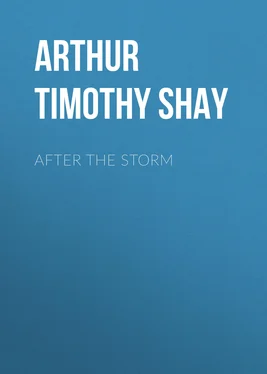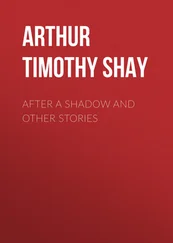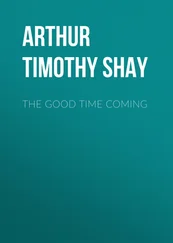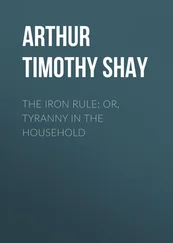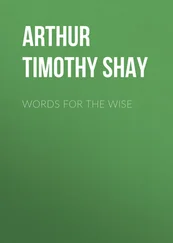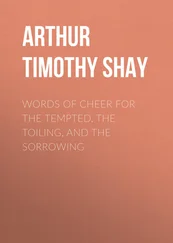Timothy Arthur - After the Storm
Здесь есть возможность читать онлайн «Timothy Arthur - After the Storm» — ознакомительный отрывок электронной книги совершенно бесплатно, а после прочтения отрывка купить полную версию. В некоторых случаях можно слушать аудио, скачать через торрент в формате fb2 и присутствует краткое содержание. Жанр: foreign_sf, literature_19, foreign_antique, foreign_prose, на английском языке. Описание произведения, (предисловие) а так же отзывы посетителей доступны на портале библиотеки ЛибКат.
- Название:After the Storm
- Автор:
- Жанр:
- Год:неизвестен
- ISBN:нет данных
- Рейтинг книги:5 / 5. Голосов: 1
-
Избранное:Добавить в избранное
- Отзывы:
-
Ваша оценка:
- 100
- 1
- 2
- 3
- 4
- 5
After the Storm: краткое содержание, описание и аннотация
Предлагаем к чтению аннотацию, описание, краткое содержание или предисловие (зависит от того, что написал сам автор книги «After the Storm»). Если вы не нашли необходимую информацию о книге — напишите в комментариях, мы постараемся отыскать её.
After the Storm — читать онлайн ознакомительный отрывок
Ниже представлен текст книги, разбитый по страницам. Система сохранения места последней прочитанной страницы, позволяет с удобством читать онлайн бесплатно книгу «After the Storm», без необходимости каждый раз заново искать на чём Вы остановились. Поставьте закладку, и сможете в любой момент перейти на страницу, на которой закончили чтение.
Интервал:
Закладка:
After dinner a ride was proposed by one of the company. Emerson responded favorably, but Irene was indifferent. He urged her, and she gave an evidently reluctant consent. While the gentlemen went to make arrangement for carriages, the ladies retired to their rooms. Miss Carman accompanied the bride. She had noticed her manner, and felt slightly troubled at her state of mind, knowing, as she did, her impulsive character and blind self-will when excited by opposition.
"I don't want to ride to-day!" exclaimed Irene, throwing herself into a chair as soon as she had entered her room; "and Hartley knows that I do not."
Her cheeks burned and her eyes sparkled.
"If it will give him pleasure to ride out," said Rose, in a gentle soothing manner, "you cannot but have the same feeling in accompanying him."
"I beg your pardon!" replied Irene, briskly. "If I don't want to ride, no company can make the act agreeable. Why can't people learn to leave others in freedom? If Hartley had shown the same unwillingness to join this riding party that I manifested, do you think I would have uttered a second word in favor of going? No. I am provoked at his persistence."
"There, there, Irene!" said Miss Carman, drawing an arm tenderly around the neck of her friend; "don't trust such sentences on your lips. I can't bear to hear you talk so. It isn't my sweet friend speaking."
"You are a dear, good girl, Rose," replied Irene, smiling faintly, "and I only wish that I had a portion of your calm, gentle spirit. But I am as I am, and must act out if I act at all. I must be myself or nothing."
"You can be as considerate of others as of yourself?" said Rose.
Irene looked at her companion inquiringly.
"I mean," added Rose, "that you can exercise the virtue of self-denial in order to give pleasure to another—especially if that other one be an object very dear to you. As in the present case, seeing that your husband wants to join this riding party, you can, for his sake, lay aside your indifference, and enter, with a hearty good-will, into the proposed pastime."
"And why cannot he, seeing that I do not care to ride, deny himself a little for my sake, and not drag me out against my will? Is all the yielding and concession to be on my side? Must his will rule in everything? I can tell you what it is, Rose, this will never suit me. There will be open war between us before the honeymoon has waxed and waned, if he goes on as he has begun."
"Hush! hush, Irene!" said her friend, in a tone of deprecation. "The lightest sense of wrong gains undue magnitude the moment we begin to complain. We see almost anything to be of greater importance when from the obscurity of thought we bring it out into the daylight of speech."
"It will be just as I say, and saying it will not make it any more so," was Irene's almost sullen response to this. "I have my own ideas of things and my own individuality, and neither of these do I mean to abandon. If Hartley hasn't the good sense to let me have my own way in what concerns myself, I will take my own way. As to the troubles that may come afterward, I do not give them any weight in the argument. I would die a martyr's deaths rather than become the passive creature of another."
"My dear friend, why will you talk so?" Rose spoke in a tone of grief.
"Simply because I am in earnest. From the hour of our marriage I have seen a disposition on the part of my husband to assume control—to make his will the general law of our actions. It has not exhibited itself in things of moment, but in trifles, showing that the spirit was there. I say this to you, Rose, because we have been like sisters, and I can tell you of my inmost thoughts. There is a cloud already in the sky, and it threatens an approaching storm."
"Oh, my friend, why are you so blind, so weak, so self-deceived? You are putting forth your hands to drag down the temple of happiness. If it fall, it will crush you beneath a mass of ruins; and not you only, but the one you have so lately pledged yourself before God and his angels to love."
"And I do love him as deeply as ever man was loved. Oh that he knew my heart! He would not then shatter his image there. He would not trifle with a spirit formed for intense, yielding, passionate love, but rigid as steel and cold as ice when its freedom is touched. He should have known me better before linking his fate with mine."
One of her darker moods had come upon Irene, and she was beating about in the blind obscurity of passion. As she began to give utterance to complaining thoughts, new thoughts formed themselves, and what was only vague feelings grew into ideas of wrong; and these, when once spoken, assumed a magnitude unimagined before. In vain did her friend strive with her. Argument, remonstrance, persuasion, only seemed to bring greater obscurity and to excite a more bitter feeling in her mind. And so, despairing of any good result, Rose withdrew, and left her with her own unhappy thoughts.
Not long after Miss Carman retired, Emerson came in. At the sound of his approaching footsteps, Irene had, with a strong effort, composed herself and swept back the deeper shadows from her face.
"Not ready yet?" he said, in a pleasant, half-chiding way. "The carriages will be at the door in ten minutes."
"I am not going to ride out," returned Irene, in a quiet, seemingly indifferent tone of voice. Hartley mistook her manner for sport, and answered pleasantly—
"Oh yes you are, my little lady."
"No, I am not." There was no misapprehension now.
"Not going to ride out?" Hartley's brows contracted.
"No; I am not going to ride out to-day." Each word was distinctly spoken.
"I don't understand you, Irene."
"Are not my words plain enough?"
"Yes, they are too plain—so plain as to make them involve a mystery. What do you mean by this sudden change of purpose?"
"I don't wish to ride out," said Irene, with assumed calmness of manner; "and that being so, may I not have my will in the case?"
"No—"
A red spot burned on Irene's cheeks and her eyes flashed.
"No," repeated her husband; "not after you have given up that will to another."
"To you!" Irene started to her feet in instant passion. "And so I am to be nobody, and you the lord and master. My will is to be nothing, and yours the law of my life." Her lip curled in contemptuous anger.
"You misunderstand me," said Hartley Emerson, speaking as calmly as was possible in this sudden emergency. "I did not refer specially to myself, but to all of our party, to whom you had given up your will in a promise to ride out with them, and to whom, therefore, you were bound."
"An easy evasion," retorted the excited bride, who had lost her mental equipoise.
"Irene," the young man spoke sternly, "are those the right words for your husband? An easy evasion!"
"I have said them."
"And you must unsay them."
Both had passed under the cloud which pride and passion had raised.
"Must! I thought you knew me better, Hartley." Irene grew suddenly calm.
"If there is to be love between us, all barriers must be removed."
"Don't say must to me, sir! I will not endure the word."
Hartley turned from her and walked the floor with rapid steps, angry, grieved and in doubt as to what it were best for him to do. The storm had broken on him without a sign of warning, and he was wholly unprepared to meet it.
"Irene," he said, at length, pausing before her, "this conduct on your part is wholly inexplicable. I cannot understand its meaning. Will you explain yourself?"
"Certainly. I am always ready to give a reason for my conduct," she replied, with cold dignity.
"Say on, then." Emerson spoke with equal coldness of manner.
"I did not wish to ride out, and said so in the beginning. That ought to have been enough for you. But no—my wishes were nothing; your will must be law."
Читать дальшеИнтервал:
Закладка:
Похожие книги на «After the Storm»
Представляем Вашему вниманию похожие книги на «After the Storm» списком для выбора. Мы отобрали схожую по названию и смыслу литературу в надежде предоставить читателям больше вариантов отыскать новые, интересные, ещё непрочитанные произведения.
Обсуждение, отзывы о книге «After the Storm» и просто собственные мнения читателей. Оставьте ваши комментарии, напишите, что Вы думаете о произведении, его смысле или главных героях. Укажите что конкретно понравилось, а что нет, и почему Вы так считаете.
